Key Highlights
- Early warning signs of diabetes include frequent urination, excessive thirst, and unexplained weight loss, which often go unnoticed.
- Persistent fatigue and blurry vision can be common diabetes symptoms linked to rising blood sugar levels.
- Subtle symptoms like slow wound healing, tingling in hands or feet, and dry mouth may signal underlying blood sugar issues.
- Regular physical activity and a healthy lifestyle are important in reducing the risk factors for diabetes.
- Early detection through simple blood tests can help prevent severe diabetes complications and preserve quality of life.
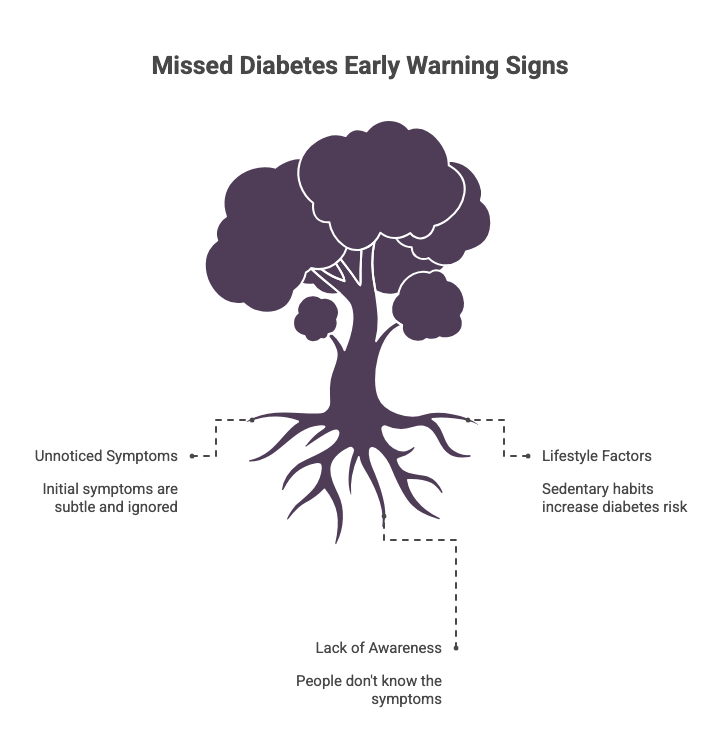
Recognizing the Early Warning Signs of Diabetes: A Guide to Staying Ahead
Diabetes is a serious health condition that affects millions of people around the world. Surprisingly, one in three American adults has pre-diabetes, though most are unaware of their condition. Recognizing the early warning signs can empower you to take proactive steps to prevent or manage diabetes effectively.
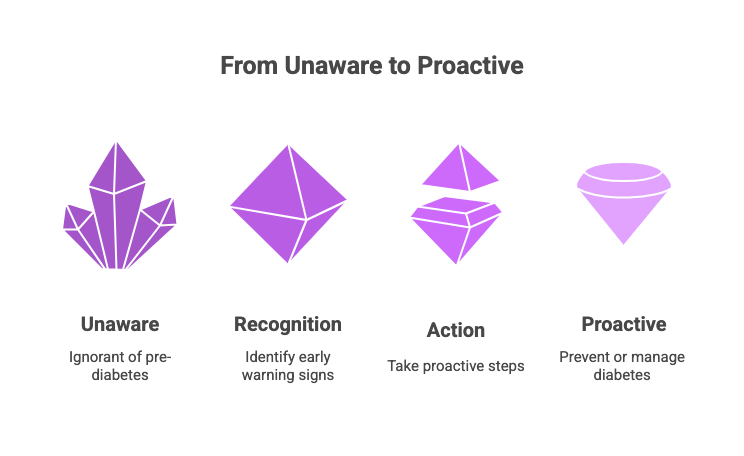
Understanding the Warning Signals
Have you been feeling exhausted, using the restroom more frequently, or finding it hard to quench your thirst? While these might seem like minor inconveniences, they could be indicative of something more serious—diabetes. It’s crucial not to ignore these subtle hints from your body, as they could be early signs of type 2 diabetes mellitus.
The Subtle Whispers of Your Body
Our bodies have a way of signaling when something is wrong; we just need to listen. Symptoms such as frequent urination, persistent fatigue, fuzzy vision, unexplained weight loss, tingling sensations in the hands and feet, and slow-healing cuts and bruises are your body’s way of communicating that it needs attention. These signs are not silent cries but critical alerts that shouldn’t be overlooked.
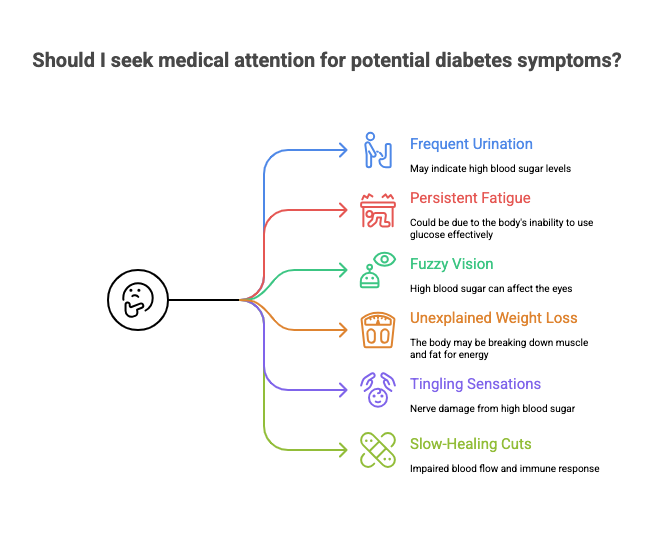
The Importance of Early Detection
According to the Centers for Disease Control and Prevention (CDC), detecting diabetes early is vital. It can prevent further complications such as nerve damage, heart disease, and kidney failure. Therefore, it is essential to acknowledge these whispers from your body and seek medical advice promptly. Getting tested could be the first step towards managing your health effectively.
Proactive Prevention
The good news is that with awareness comes the possibility of prevention. Pay attention to what your body is trying to tell you and take action by consulting with a healthcare provider. Prevention starts with awareness, and by staying informed, you can protect your health. Remember, prevention is more manageable than managing a chronic condition later on.
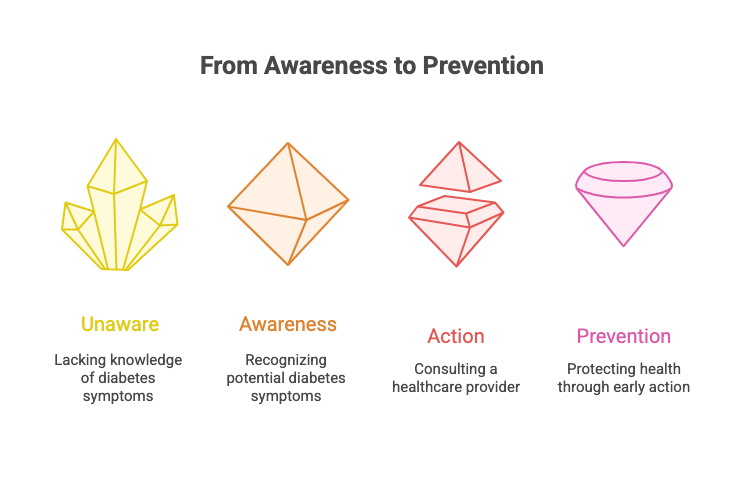
Conclusion
Your health is the most significant asset you have; it is your superpower. Therefore, listening to your body’s early warning signals is vital. Don’t wait for symptoms to become severe. Act now by getting tested and taking control of your health journey.
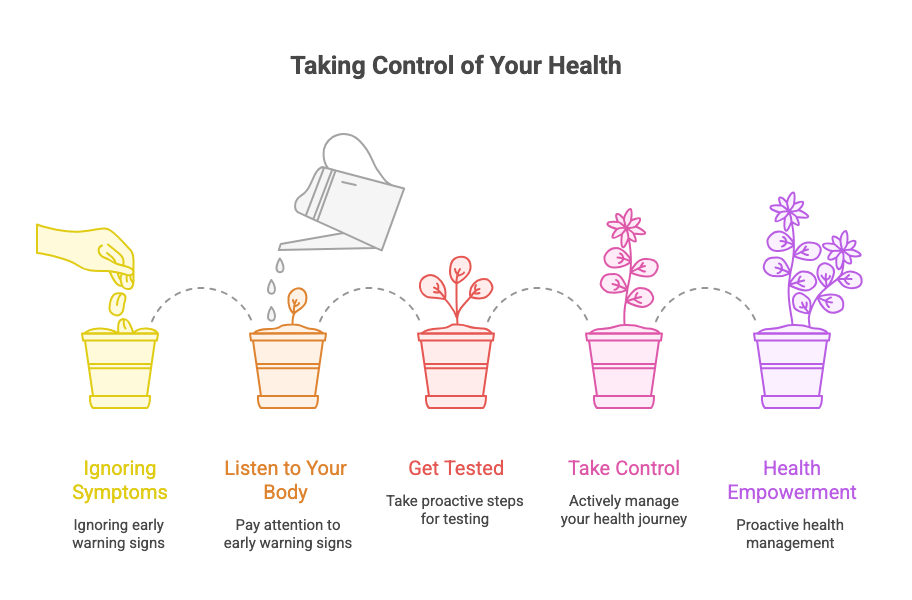
Frequently Asked Questions
How can I tell if my symptoms are related to diabetes or another condition?
Diabetes symptoms such as frequent urination, thirst, or fatigue can mimic other common conditions. If you have risk factors for diabetes or notice these symptoms persistently, a simple blood test ordered by your health care provider can clarify whether diabetes is the cause.
Which lifestyle habits increase the likelihood of noticing early diabetes warning signs?
A sedentary routine, unhealthy eating habits, and excess body weight can raise your risk of high blood sugar levels and make early diabetes symptoms more noticeable. Regular physical activity and a healthy lifestyle help manage risk factors and may reduce the appearance of warning signs.
When should I see a healthcare professional about possible diabetes symptoms?
If you develop early warning signs such as frequent urination, excessive thirst, or unexplained weight loss, it’s important to seek medical advice promptly. Untreated diabetes increases the risk of severe complications, so timely evaluation and management by a health care provider are crucial.


